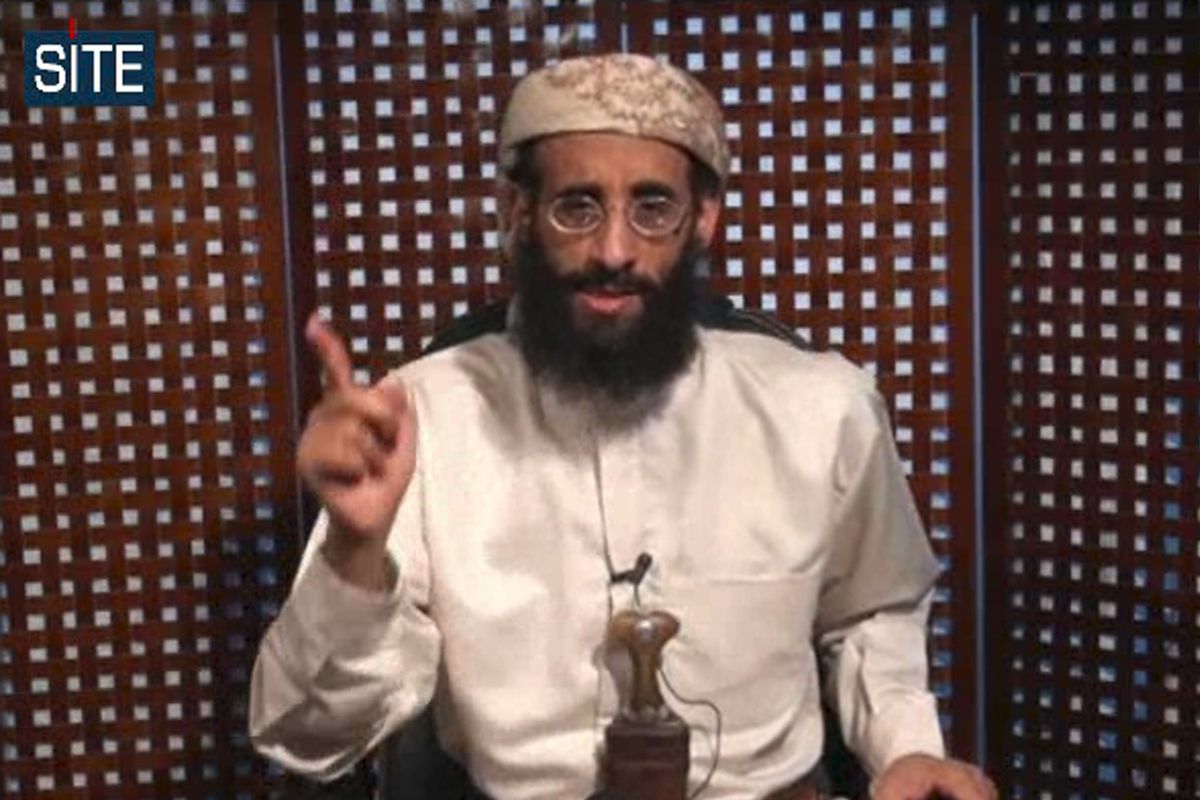U.S. drones kill influential al-Qaida operative in Yemen
Al-Awlaki was U.S. citizen; American editor of online jihadi magazine also killed

WASHINGTON – U.S. Predator drone aircraft armed with Hellfire missiles carried out the targeted killing in northern Yemen of Anwar al-Awlaki, a radical Muslim cleric who was a U.S. citizen, and also killed another American who produced virulent propaganda for al-Qaida.
The lethal strike, a CIA-led covert operation that relied on U.S. special operations forces and Yemeni authorities, marks the first time since the anti-terrorism campaign began after the Sept. 11 attacks a decade ago that the U.S. government deliberately tracked and killed an American citizen.
The drone strike also signaled what may be a new phase of U.S. military and intelligence operations in Yemen.
U.S. officials fear that Yemen, which has endured months of deadly violence and tribal fighting, would allow al-Qaida to strengthen its hold on strategic territory at the intersection of the Middle East and the Horn of Africa.
Although al-Awlaki, 40, was a midlevel figure in al-Qaida, he cast a potent shadow in U.S. counterterrorism circles because he spoke fluent English and was effective at reaching disaffected Muslims in the United States and elsewhere via speeches and sermons on the Internet.
His death thus marks not only an escalation of Obama administration efforts to kill leaders of al-Qaida and its affiliates, but another significant intelligence coup after the CIA-led raid that killed Osama bin Laden on May 2 in Pakistan.
Unlike that raid, U.S. officials were not eager to provide extensive details of the operation against al-Awlaki, possibly fearing that disclosures about U.S. operations in Yemen could jeopardize future operations.
Officials said Yemeni authorities had interrogated an al-Qaida operative in their custody and he had disclosed al-Awlaki’s hideout at a house in Yemen’s northern Jawf province. The house was placed under surveillance, which lasted for several weeks.
When the convoy drove away from the hideout Friday morning, a pair of Predator drones flying overhead tracked their movement. At least one missile was fired at about 10 a.m., and local reports said the bodies were so mangled they were buried in sandbags.
U.S. officials said the surveillance and drone attack was code-named Operation Troy. A U.S. Navy amphibious landing ship steamed offshore, the officials said, with Harrier jets prepared to attack the convoy if the Predators failed. The jets were not used.
Friday’s drone strike also killed Samir Khan, 25, who grew up in New York and ran a pro-al-Qaida website in Charlotte, N.C., before he moved to Yemen several years ago. Khan is believed to have founded and edited Inspire, a glossy, English-language online magazine published in Yemen that praised suicide bombers and methods of mass murder.
Politicians from both parties in Washington applauded the death of the two influential al-Qaida figures. But the strike also intensified a debate about whether, by killing American citizens without due process or judicial review, the U.S. government had crossed into dangerous legal territory with no clear limits.
U.S. counter-terrorism officials said they did not know in advance that Khan was riding in the convoy with al-Awlaki.
“Samir Khan was a bonus. It was a two-fer,” said Rep. Mike McCaul, R-Texas, who serves on the House homeland security committee. “It’s a pretty good hit.”
Late Friday, two U.S. officials said intelligence indicated that the top al-Qaida bomb-maker in Yemen also died in the strike. Ibrahim al-Asiri was the bomb-maker linked to the bomb hidden in the underwear of the Nigerian man accused of trying to blow up a plane over Detroit on Christmas Day 2009.